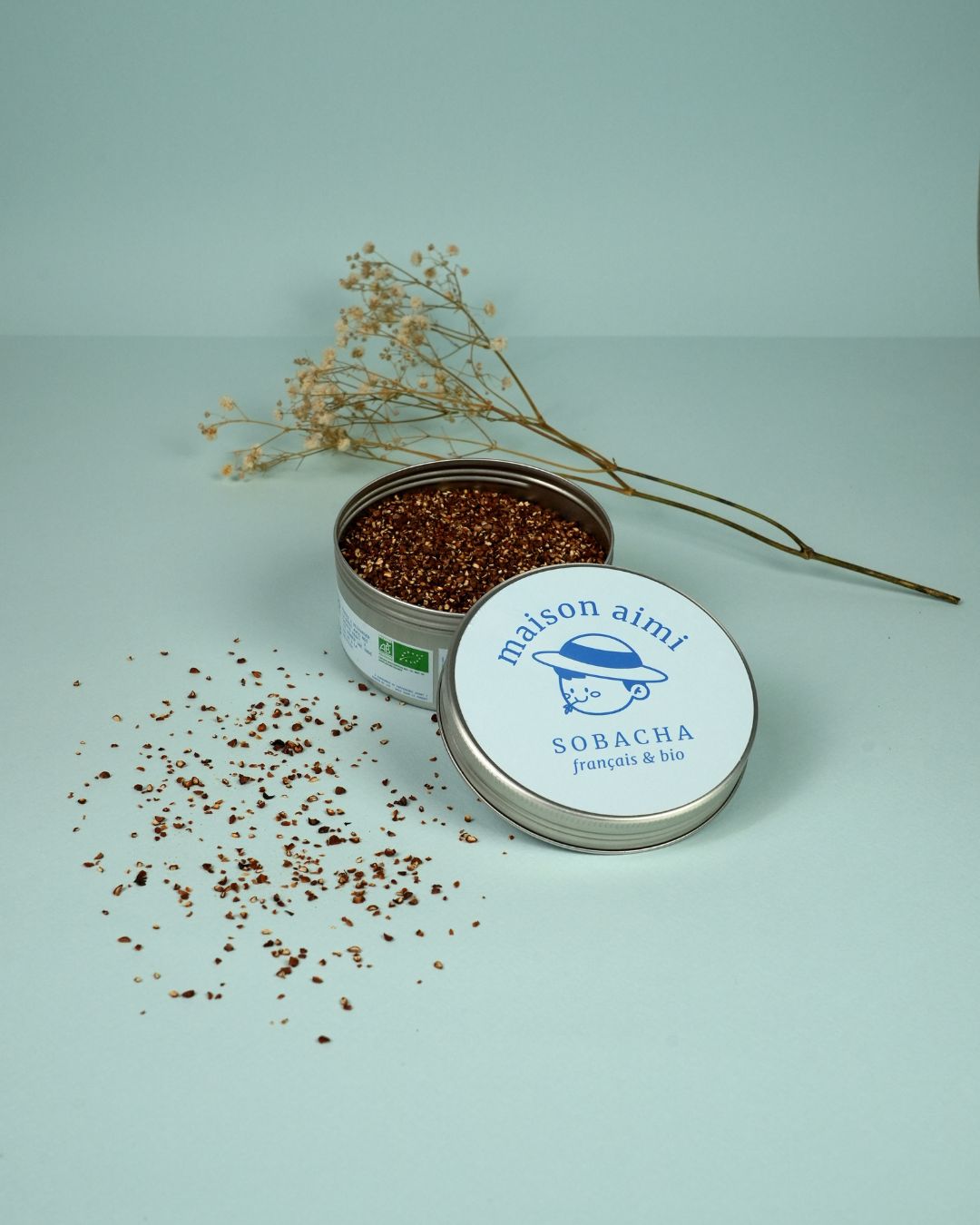Discovering the Genki Way of Life in Japan

Are you interested in philosophical and personal development concepts in Japan? That's good: Maison Aimi is greatly inspired by them and has decided to introduce them to you little by little. Passionate about Japan and its culture, Charlotte, our founder, regularly introduces you to the teachings of Japanese culture and philosophy in her newsletter (don't hesitate to subscribe to Nikki by Maison Aimi 💌). For the first article in this series, we present the Genki concept and way of life in Japan. Great discovery.
SUMMARY
What does the word “Genki” mean?
> And Genki desu ka?
The Genki concept, a personal development concept with Western accents
> The Genki concept according to Nicolas Chauvat
> And in Japan?
Our 4 tips for feeling more genki every day
> Own less, own better
> Take the time to talk with others
> Always try new things
> Pay attention to yourself, your body and your mind
What does the word “Genki” mean?
The word Genki (元気) ** is composed of the kanji Gen (元), which means “source”, “origin”, and *ki (*気), which means “spirit”, “health”, “will”, “motivation”… Genki is a term that does not really have an equivalent in French but which means “to feel good”, “to be in shape” because its vital energy is ok, balanced. It is a term that refers as much to physical health as to mental health, but also to the relationship with others and our relationships. Being Genki is being in harmony with oneself, it is the interior that radiates on the exterior.
And Genki desu ka?
In everyday life in Japan, the term Genki is usually used in a formula that has nothing to do with the concepts of personal development. “ Genki desu ka?” is the equivalent, in French, of the expression “How are you?” or, more literally, “Are you in good shape?” In response, we say “ Genki desu ”: “How are you”, or “I am in good shape.”
The Genki concept, a personal development concept with Western accents
The concept of “Genki” has been linked to personal development for several years – 2018 to be exact. And for good reason: Nicolas Chauvat, a French author on personal development, published the book Genki, the 10 golden rules of the Japanese in 2018 at Jouvence éditions. Highlighting the Genki concept and its importance in personal development, this book helped to make it known in the Western world and to give it a meaning that is not necessarily the same as in Japan.
According to him, this book " compiles the 10 Japanese words whose teachings have been most useful to me in both my professional and personal life. Concise but with several degrees of interpretation, these words have become for me golden rules that allow me to find the motivation necessary to work on myself day by day. I sincerely hope that they will also be a constant source of inspiration for you to become who you want to be . "
The Genki concept according to Nicolas Chauvat
According to Nicolas Chauvat, being a genki consists of “staying in shape while preserving one’s energy”.
With this objective, the author insists on the need not to seek speed but constancy . The goal? To avoid dispersing and scattering ourselves because this tends to waste our energy, our “ki”.
He invites us to respect three common sense rules:
- Learn to give meaning to what we do: before each action and each project, ask ourselves why we are doing it rather than how so as not to use it in a project which would ultimately turn out to be meaningless for us;
- Don't consider stress as an enemy: it is normal to be stressed by certain events or situations and accepting it can help you better understand these moments. This is especially true if you accept that stress can be a stimulant.
- Don't be too hard on yourself: accept that you can't control everything. Constant and repeated self-criticism, even more so when it is unjustified and directed at events that you cannot control, is a source of emotional and then physical fatigue.
And in Japan?
From the information we were able to gather at the time of writing this article, it appears that the concept of “Genki” in Japan is much “simpler” than the one we seek to associate with it in personal development. It is essentially linked to its primary meaning: “to be in shape”, “to feel good” overall – like our “ça va” in France. A “genki” child will be a child in great shape, full of life, alive. A “genki” adult, an adult in harmony with himself, who goes through life serenely, positively. Absolutely wanting to link it to a concept of personal development is a Westernized vision of Japanese well-being.
Our 4 tips for feeling more genki every day
Maison Aimi is a French brand created by Charlotte Chronberg, herself passionate about Japan and well-being and it was normal for her to be interested in the bridges that exist between the visions of well-being in France and Japan. This is why it seemed important to us 1) to talk about it here, on this blog, and 2) to offer you ways to align your body and mind, like this Genki concept. Here are 4 tips to feel more aligned on a daily basis.
1. Own less, own better
If you are interested in Japan and personal development, it is very possible that the KonMari method (also called the Mari Kondo method) is not unknown to you. It is a method of folding and more broadly of tidying up that focuses on the attachment that we have to people and things. And it is a method that puts minimalism at the heart of mental balance. Having less is having better: we question ourselves more at length about the objects that we bring into our daily lives and we take full advantage of them.
💌 Don't hesitate to tell us if you would like us to write articles about this method and more broadly about concepts related to personal development and Japan.
2. Take the time to interact with others
Being a genki is, beyond being in good mental and physical health, being in good “social” health. It is being in harmony with others, in one’s relationships. This can be with one’s family, friends, colleagues, but also more broadly with all the people one is led to meet in one’s day: the baker, the cashier, the salesman… all these people deserve attention and can give it. Taking the time to exchange with these people is to encourage beautiful interactions and create lovely moments.
3. Always try new things
Trying new things: this can seem overwhelming. It means getting out of your comfort zone, being forced to fail, to do things you don't know how to do... BUT not necessarily. The more you do new things, the more you try new activities, the more success and failure are no longer at the center of your concerns: pleasure, curiosity, the joy of novelty take precedence. These emotions are positive and help you feel good.
Moreover, we can only encourage you to find and cherish beautiful passions. Being passionate means vibrating, being interested, being informed, it is also getting out of your daily routine to learn new things and always go further. Attaching yourself to a passion means reconnecting with yourself and creating strong moments.
4. Pay attention to yourself, your body and your mind
Last way to feel genki, take care of your body and mind. You certainly know how to take care of your body–eat balanced, sleep well, limit stimulants such as caffeine and theine or even alcohol–but it is not always easy to stick to it. And for good reason: we want to enjoy, exchange, go out–activities that are also there to take care of our mind! In the end, the whole concept of genki is based on this fragile balance: accepting not to be perfect and flourishing while respecting our body as much as possible.
Being a genki is about being fit on all levels—mental, physical, social. However, wanting to absolutely link it to a concept of personal development is a Westernized vision that is not necessarily applied as such in Japan.


